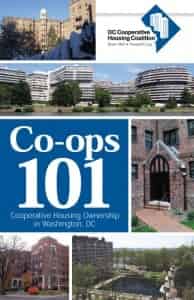 Scroll Down For More
Scroll Down For More
A housing cooperative is a corporation that owns a residential property. It is owned and controlled jointly by a group of individuals who own shares or memberships in the corporation. Co-op members do not own their units. They have exclusive rights to occupy their units by virtue of their memberships in the cooperative corporation.
In 1920, ten rental apartment buildings in Washington, D.C., converted to cooperative ownership, and over the years many more did so or were built as co-ops. Housing co-ops are in every part of the city and take many architectural and organizational forms.
There are more than a million co-op units in the U.S., Washington has one of the largest concentrations, though New York City has the largest. In the metropolitan area there are about 15,000 cooperative units, most of which are in the District of Columbia.
Just as neighborhoods have distinct personalities, so do co-ops. Choose one that suits your lifestyle. Review the house rules and by-laws and assess the level of services and amenities available. A real estate agent familiar with co-ops can provide the information you need to make an educated decision.
 A housing cooperative is a form of ownership in which a person purchases shares (or membership) in a cooperative corporation that was formed for the purpose of providing its members a place in which to live. The cooperative corporation owns the building, land, apartments and all common elements. The owners/ members, in turn, own the corporation.
A housing cooperative is a form of ownership in which a person purchases shares (or membership) in a cooperative corporation that was formed for the purpose of providing its members a place in which to live. The cooperative corporation owns the building, land, apartments and all common elements. The owners/ members, in turn, own the corporation.
The instrument of ownership is called different things in different associations. Some issue “shares of stock,” some a “proprietary lease” and others a “perpetual use and equity contract.” Regardless of what the ownership document is called, the effect is the same. It conveys the perpetual use of a specified unit – usually an apartment, sometimes a townhouse – together with the right to sell it subject to the co-op’s approval and the obligation to support the co-op by paying fees.
There are several reasons why cooperatives continue to be a preferred form of ownership for personal residences. Benefits for market-rate housing cooperatives include: